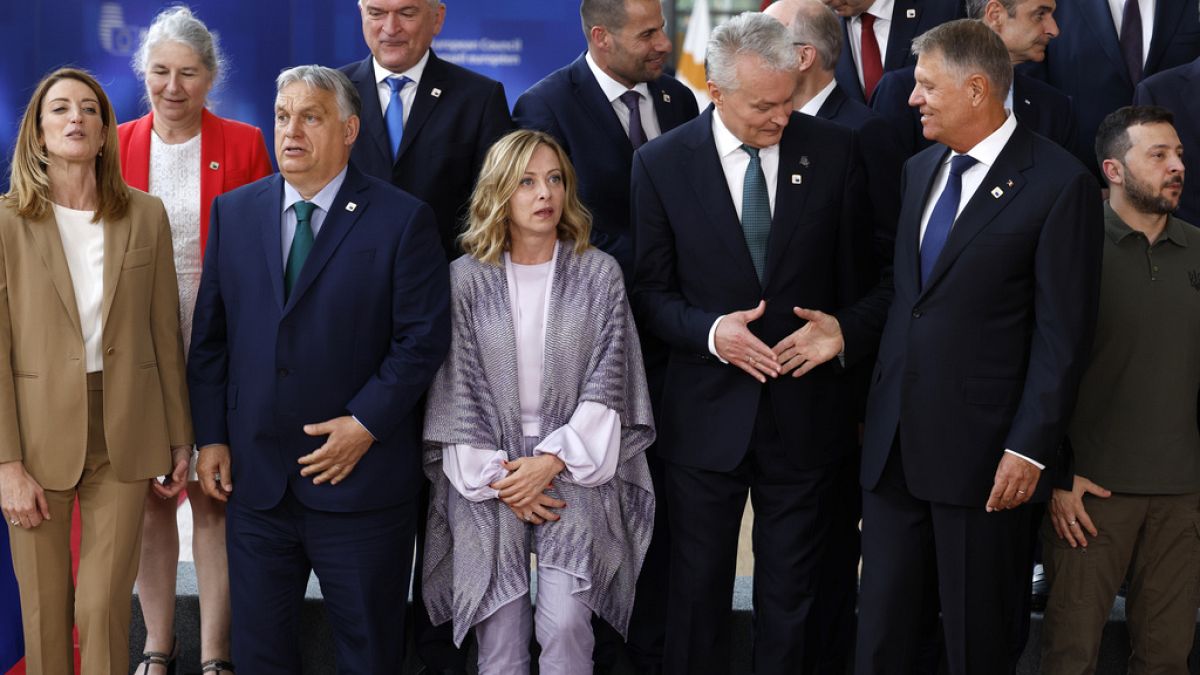Last week Italy’s Prime Minister Giorgia Meloni blocked the EU job nomination package, including abstaining from on Ursula Von Der Leyen as a candidate for re-election as EU Commission President. She argued the deal had problems of both “method and merit”. Before the Italian parliament, she said it was “undemocratic” because it didn’t take into account the people’s vote.
With the double “no” to Kallas and Costa, questions are being asked in Brussels and in Rome if Italy will be isolated. Some analysts say it’s just a way for the Italian leader to buy more time.
With only a couple of weeks to go before the vote on the most powerful EU job, we asked the Brothers of Italy lower house group leader what’s behind Giorgia Meloni’s stance.
“The goal of the top EU job appointments is to acknowledge the message that has come out of the polls, which says that both Macron’s and Scholz’s policies have been rejected by voters,” explains Tommaso Foti.
Italy won’t risk being isolated in the EU
A government elected by the people, not a technocratic government is what Giorgia Meloni has always stood for since before she became prime minister and it’s one of the founding principles of her government. This time the debate about “decisions being taken by a small group of people” is about what’s happening within the EU institutions. Enzo Moavero Milanesi, former EU Affairs Minister under Monti, tells Euronews Italy won’t risk being isolated in the EU.
But it’s clear that under Meloni, after the EU vote, the Italian government wants to be seen and heard more than in the past. The “Italy and Italians first” is one of the main promises Meloni has always wanted to deliver.
It seems that for Brothers of Italy, Brussels has to acknowledge that the shift to the right is happening in Europe as per the people’s will.
“We don’t see why we should still believe in the Franco-German axis when it has been demolished by the voters in both countries,” says Foti.
According to Moavero Milanesi, Meloni is pursuing a political strategy, and that’s what counts “The ball is in the Italian PM’s court. The way EU institutions are elected is very different from national elections” says Milanesi, adding that in Meloni’s case, she is also the President of the ECR group. So when it comes to top EU job appointments the two roles have an impact on the strategy she will follow.
In other words, according to Milanesi, many different factors will influence the Italian government’s choices in Europe. All of them count when it comes to politics.
The outcome of the French elections will also be another element in the mix as political analyst Roberto Arditti says: “It will clarify even more how strong are the right-wing parties across Europe inside national governments” Arditti tells Euronews.
Even if National Rally’s Marine Le Pen and Meloni would have to find a way to live with their political differences, Arditti says: “It’s hard to imagine that the power balances in Brussels will exclude both the French and Italian governments if both have a right-wing majority”.
Above all besides the top EU job nominations and the Italian disappointment that followed Meloni is focusing on one thing: getting a top commission post for Italy. Without it she won’t be able to show Italian voters that Rome is able to be heard in Europe.

